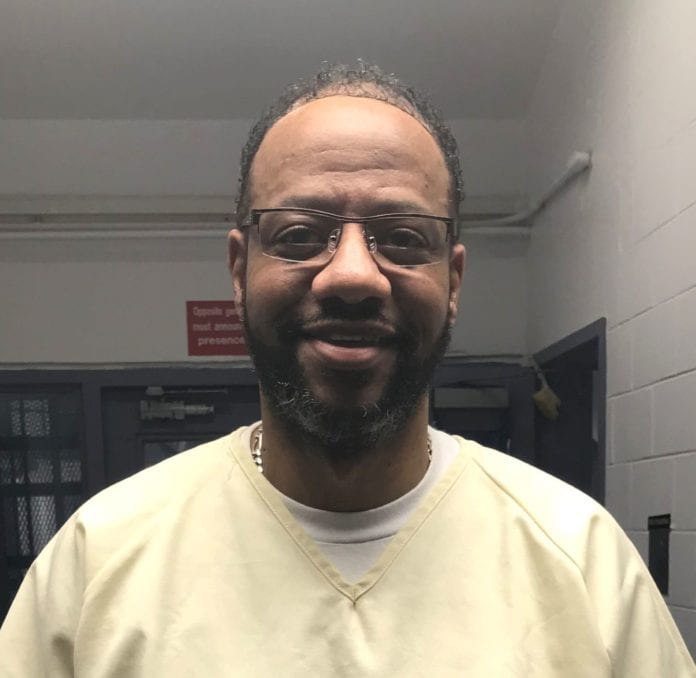A team that includes clergy, legal representatives, clinical mental health professionals and legislators are celebrating Pervis Payne’s temporary reprieve from execution, while working on dual fronts to see that Payne receives clemency and gets released from prison.
Tennessee Gov. Bill Lee, citing “challenges and disruptions caused by the COVID-19 pandemic,” granted Payne a temporary reprieve from his scheduled Dec. 3 execution.
Payne, who has an intellectual disability, was convicted of the 1987 murder of Charisse Christopher and her daughter. He now faces an execution date of April 9.
“We went up to Nashville and had a meeting with the governor’s chief counsel,” said Bishop David Hall, pastor of Temple Church of God in Christ. “We have to speak when morality and the government are juxtaposed. It is against the law to execute a person with a mental disability. Our position is that in this matter, the government must be on the side of morality.”
The group asked Lee for clemency so additional evidence can be presented in court on Payne’s behalf.
Tennessee state Rep. G.A. Hardaway, chairman of the Tennessee Black Caucus of State Legislators (TBCSL), has filed legislation to protect the intellectually disabled from state executions.
But the bill that will give Payne a “pathway back to court,” said Hardaway, won’t get through committee and moved through the legislature until about the end of January and the first of February.
The legislation would give Payne and others like him time to present their intellectual disability claims in state court.
Although the U.S. Supreme Court and the Tennessee Supreme Court have ruled that the execution of people with intellectual disabilities is unconstitutional, there is currently no process in Tennessee for convicted people with intellectual disabilities to have their disability claims heard in court.
“The Supreme Court ruled in 2002 that persons with intellectual disabilities could not be executed,” Hardaway said. “All these years, legislation needed to be passed to get Pervis Payne back to court, so the issue of his disability could be dealt with.”
Hardaway’s bill will go to committee when the legislature convenes in January. He said the bill should be before the whole body by the end of January, or early in February.
The late-April reprieve gives Payne’s advocates time to schedule another day in court.
“The Tennessee Black Caucus of State Legislators welcomes this opportunity to pursue justice,” said Hardaway. “We have temporarily avoided a tragic miscarriage of justice, merely because of a curable gap in the rules of law.”
Kelley Henry, Payne’s legal counsel, said evidence had been sent off to test for DNA and that the defense team is hopeful it will provide proof of Payne’s innocence of the double murder. Results are expected back in later this month.
However, vital evidence, such as the victim’s fingernail clippings have disappeared from the file, but were never tested for DNA.
“How can you execute a man and vital evidence has somehow disappeared over the years? Hall said. “The death penalty has always been racially abused, especially in cases where blacks have been accused of killing whites.”
Payne has sat on death row for more than three decades, convicted without some evidence in his case being tested for DNA.
In September, attorneys from the Nashville Innocence Project led a charge to have the remaining evidence DNA-tested.
“This reprieve granted to Pervis Payne has averted an unconstitutional act … by the state of Tennessee,” said Hardaway.
Advocates’ worst-case scenario is for Payne’s sentence to be commuted. According to family members, Payne’s story never changed. He went to see his girlfriend. She was not at home. As he started to leave, he heard noise in the apartment across the hall of a distressed nature.
The door was open, he went in, and found three victims brutally stabbed, a woman and two children.
Payne said he pulled a knife out of the woman’s neck and got blood all over him. He said realized police would think he did it, so he ran and was found by police a few minutes later.
According to clinical professionals, Payne tests at an IQ level of 68.
“There are some things that are just right to do,” said Hall. “There has never been a lynching that did not have both police and judicial complicity. Executing Pervis Payne would be most assuredly a lynching.”




